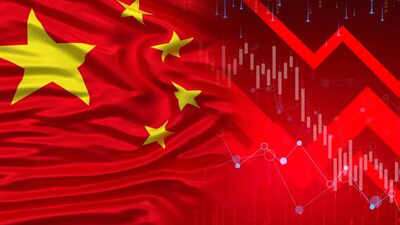China’s economy grew at a slower-than-expected rate in the second quarter, expanding by 4.7 percent, official statistics showed on Monday.
This represents the slowest rate of growth since early 2023, when the country was recovering from a zero-Covid policy that stifled growth. Analysts had expected a growth rate of 5.1 percent.
The figures were released as China’s ruling Communist Party began a key meeting focused on the economy, led by President Xi Jinping. The meeting, known as the Third Plenum, is expected to tackle the country’s deepening economic challenges, including a real estate debt crisis, weakening consumption, and an ageing population.
Retail sales, a key gauge of consumption, rose by just two percent in June, down from 3.7 percent growth in May. The National Bureau of Statistics noted that “the external environment is intertwined and complex” and “domestic effective demand remains insufficient.”
President Xi Jinping delivered a “work report” at the opening of the meeting and expounded on a draft decision to “further comprehensively deepening reform and advancing Chinese modernisation.” However, analysts expect only modest policy tweaks, with no major reforms expected.
The meeting has previously been an occasion for the party’s top leadership to unveil major economic policy shifts, but this time around, expectations are low. As the People’s Daily, the Communist Party’s official newspaper, warned last week, “reform is not about changing direction and transformation is not about changing colour.”
The economic uncertainty is fuelling a vicious cycle that has kept consumption stubbornly low, with the beleaguered property sector being a major drag on growth. Authorities have moved to ease pressure on developers and restore confidence, but analysts say much more is required for a full rebound.


